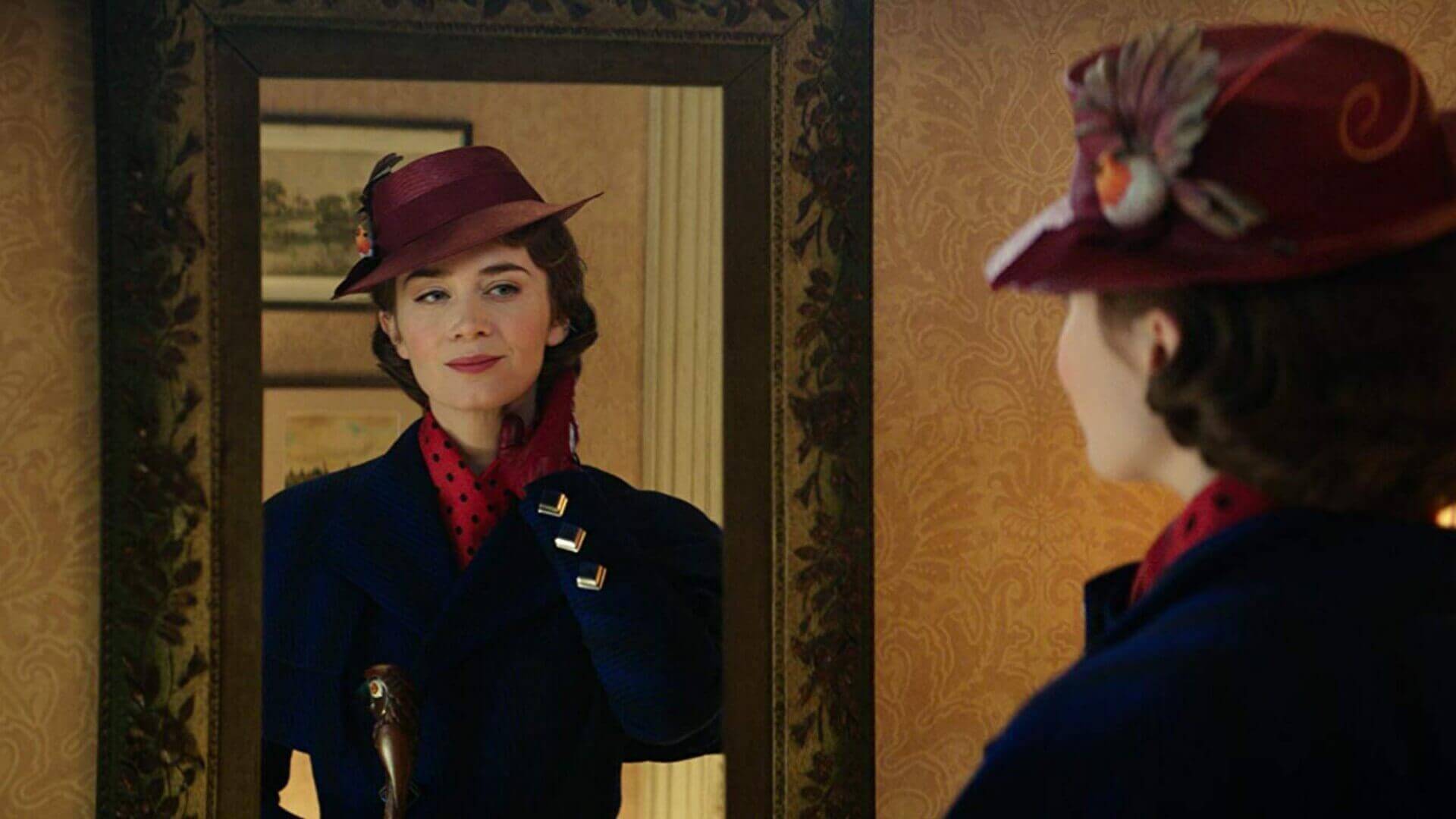Genre Tropes Vs. Homage Vs. Plagiarism
The films of 2018, and various debates surrounding them, have been increasingly making me wonder about the difference between genre tropes, homage, and just uninspired laziness. I definitely think there’s a defined difference, and I think this past year, in particular, we’ve gotten a lot of the latter. It looks as though the trend may extend into the next year’s blockbusters, but I don’t like to make assumptions about movies based on their trailers. To start the New Year off, I’d like to take a look at some of 2018’s biggest releases, as well as some older movies for reference. I also want to clarify that most of the films I found particularly repetitive or lazy this year were family films, which is a real shame. I like most genres aside from heavy romance and a certain kind of dumbed-down horror flick, but action/adventure and fantasy films made for all ages tend to be among my favorites. Superhero films from Marvel Studios, as well as Sony’s Into the Spider-Verse, actually quite impressed me, and I haven’t seen WB’s Aquaman yet. There were also lots of blockbusters I disliked for entirely unrelated reasons, like Fantastic Beasts: The Crimes of Grindelwald, which was unfocused, overblown, and at times, nearly incomprehensible. This film also retcons a couple of pretty important facts about the Potter universe and its characters, some of which are due to fanservice and trying to relive the past like some other movies we’ll be looking at here. But trying to relive the Potter series is among the least glaring flaws with Grindelwald, unlike some other films on the list.
*Spoilers for various films throughout*
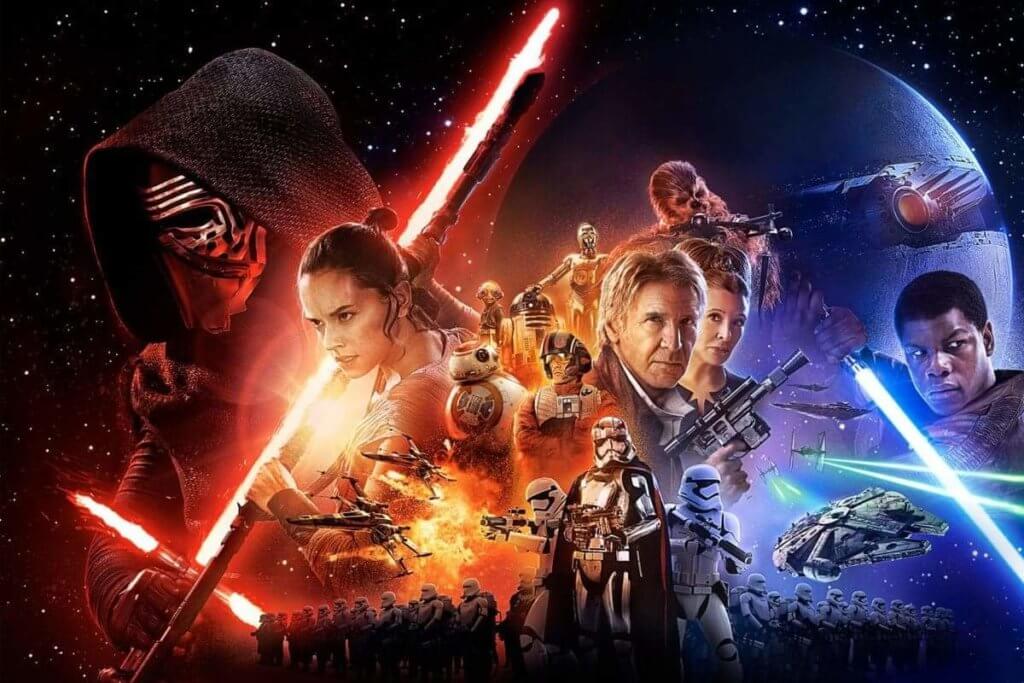
I always loved Star Wars, but like many others, I haven’t enjoyed a single Star Wars cinematic adventure since Kathleen Kennedy took over. I loved the sense of excitement I got from the series, as well as the characters and the way they changed while working through various dilemmas. I remember one of the trailers for The Force Awakens playing “Yoda and the Force” from The Empire Strikes Back and the way that trailer made me feel. I made a comment in my review about how the musical cues in Disney’s The Nutcracker and the Four Realms made me feel more by reminding me of other adaptations than by developing lovable characters. Well, there’s a similar dilemma here. The Force Awakens trailer that ended with “Yoda and the Force” was the most exciting trailer I’d seen in years, giving me goosebumps and nearly bringing me to tears. Star Wars was back, and I was convinced it was going to be good this time, that it would be done right. I realize the irony, and my personal naiveté, therein; in retrospect, I must sound like a lot of people who eagerly awaited Episode I and were shocked by the final product. Lots of people I knew personally and online leading up to Episode VII said that, despite Disney’s success with Marvel, Pixar and the Jim Henson Muppets, there was no way they could do justice to a universe and story like Star Wars. I was mindlessly, blindly hopeful that the film would do just that. When I first saw The Force Awakens in the cinema I even liked it, though it felt a little too familiar and I was crushed by decisions regarding legacy characters Han, Leia and others. I was still more interested in them and their stories than newcomers like Rey, Finn and Poe. However, for me, this isn’t a movie that holds up well to re-watches or any kind of critical thinking. We’ve all heard over and over how Rey doesn’t have enough of a hero’s journey to be interesting, and how the whole film serves as an analog to A New Hope down to copying characters and sets. That’s all absolutely true and why I dislike the movie, but I won’t belabor a point that’s been made time and again and argued better than I intend to in a piece about multiple films and franchises.
This year’s Star Wars outing, Solo, has plenty of its own problems. From the outset I was baffled by their decision to even make this movie; nobody I know was asking for a Han Solo prequel. I’ve heard Ben/Obi-Wan Kenobi, Boba Fett, even TV/book characters like Ahsoka Tano and Admiral Thrawn. But I’ve never heard of any interest in a Solo solo movie. After seeing the film, I still don’t understand the drive behind it or why they thought this story needed to be told. People always say the real reason is money, but that’s the thing: as we all know, this movie wasn’t any kind of box office hit. Like The Force Awakens and, to a lesser extent, The Crimes of Grindelwald, Solo is far too interested in Star Wars glories past and not enough in its own characters and story. We get stupid wink-wink-nudge-nudge moments like an explanation for how Han came by the name Solo – which, again, nobody was asking for. There’s also a cameo of a fan-favorite character near the end that really excited a lot of fans; however, I found it to be stupid and another indication of the film’s lack of focus. This character has been revived before and dealt with in the Rebels TV series. I don’t feel like I needed to see them again or gain further insight because their appearances in The Clone Wars and Rebels already paint a pretty detailed, vivid picture. This would be easier to forgive if I enjoyed the film, but frankly, I found it confused and unwilling to pick a tone. The romance between L3-37 and Lando is at first played as a joke, like she’s convinced he has the hots for her, prompting Q’Ira to laugh. Then, later in the film, they make it dramatic, with this huge emotional scene. What am I supposed to be feeling? This is an annoying character who shouts Tumblr catchphrases about a droid uprising in some scenes and makes quips and sarcastic remarks in others. I’m not saying having a character who is both serious and funny is a flaw; in a better-made film, it would be a huge strength. But here there’s no real personality and no depth; just the surface-level dialogue that’s already pretty bad. A scene similar to the final one with L3-37 would have had more of an impact on me if it happened to C3-PO, R2-D2, or even Chopper from Rebels. But Solo doesn’t know what to make of its characters or story. You can tell they were making a comedy at first, as many of the plot points and characters sound funny when you describe them. If they’d kept it a comedy, at least it would be unique among the growing Star Wars film universe, and it surely would have been more memorable.
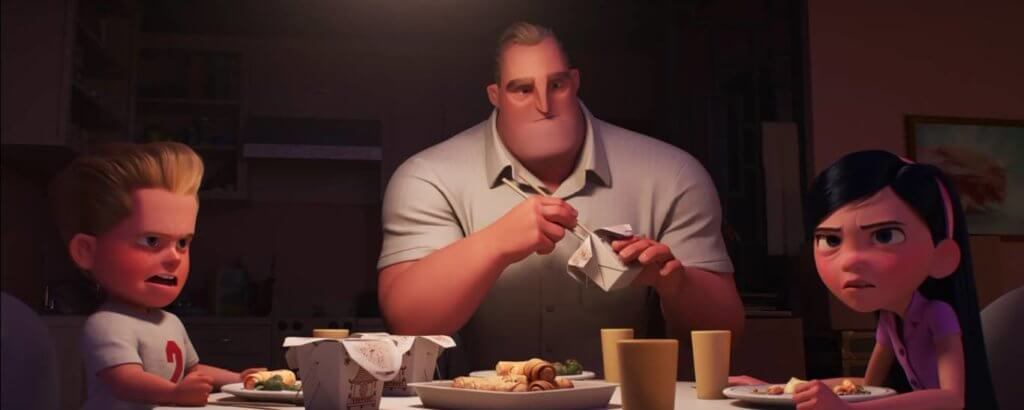
My most anticipated film for 2018 overall was Incredibles 2. Much like Laika and Walt Disney animation, anything from Pixar is a must-see for me. More than that, the first Incredibles is my favorite film of all time. Going in, I kept in mind that it’s unlikely I’ll like the sequel quite as much and that it’s its own story and shouldn’t keep being compared to the phenomenal first. However, I didn’t even need to remind myself of the events and character development in the first movie, because Incredibles 2 is constantly reminding the viewer of it. I found this charming when I first saw the film in the cinema and was blown away by the animation. However, from the very first scene, Incredibles 2 evokes the themes and even plot of the original. The first thing we see is Tony’s memory being wiped by Rick Dicker, in a fashion identical to babysitter Kari in the short film “Jack-Jack Attack.” It’s like the same scene, with similar dialogue, similar facial expressions, and nearly identical shot composition. Again, I found this winning upon first viewing, but the problem is that many scenes throughout the film are like this. The high of seeing a movie on opening night in costume (I went dressed as Elastigirl; no regrets) drowns out most reason and critical thinking, but after the film was over, I knew something was nagging at the back of my mind. The only points I could coherently explain by that time were the uselessness of the new supers to the plot, and the lack of affection between Bob and Helen, something that was quite prominent in the first movie. I saw Incredibles 2 twice more before it left cinemas, and with each viewing, I loved it a little less and had more to say about it. I bought the Blu-Ray on release day, and I’ve seen it a couple more times. It’s a good movie, with eye-popping animation and phenomenal music. If it wasn’t a sequel, I might even call it a great movie. But my gripes with the new supers and the titular marriage are among the film’s lesser flaws.
Incredibles 2 repeats so many story beats, and even some character development, from its predecessor. In some regards, it almost feels like a remake with Helen in the lead. Violet repeats her arc with Tony from the first movie, induced by his mind-wipe. This leads to funny moments like the scene in the restaurant, but it’s important to note that humor isn’t the most important thing about The Incredibles to me. Helen, meanwhile, gets no arc or development whatsoever. She’s put in Bob’s place and makes his mistake of trusting and working for a villain, but the narrative and the characters never question whether this was good, bad, or not her fault at all. The viewer may answer these questions themselves, but the film isn’t interested. The villain remarks that that’s what Elastigirl gets for trusting a stranger, but it doesn’t feel warranted and it doesn’t feel fair. She’s merely the victim of betrayal, and even that isn’t properly built up; this person whom she considers a friend and is supposed to be this huge traitor has interacted with her all of three times. And they’re good, smart conversations, but don’t really relate to Helen as a character or what ultimately leads to the film’s conflict.
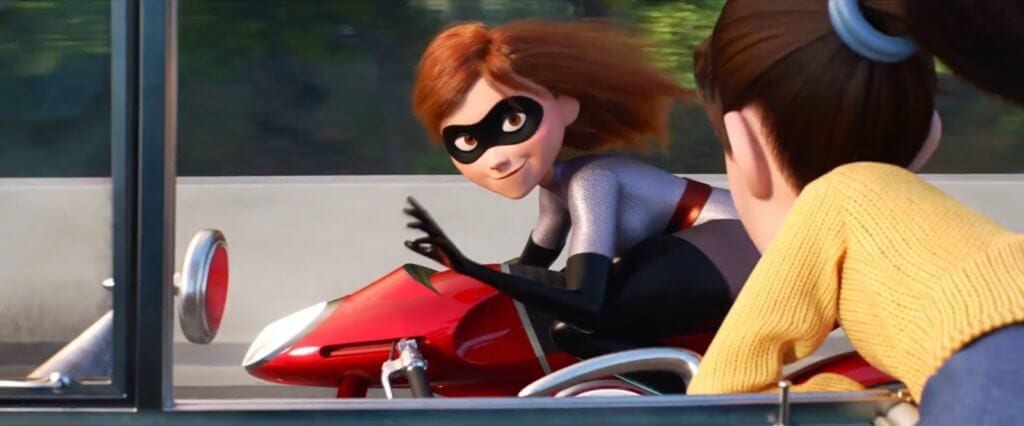
In The Incredibles, every character had an impact on the plot, and every decision had weight and would play into later events. Bob is a good person, but his desire to do good at times leads him to make foolish or downright thoughtless decisions. He lies to his wife so he can do hero work and avoid an argument. He risks his life without even telling his family where he is so they won’t worry and he can relive his fantasy. These choices aren’t always likable, but they build a complex, interesting, realistic character. Incredibles 2 seeks to mirror the plot of the first film without giving Helen any kind of character development, and even Bob’s feels at times like a retread. Learning how to really take care of the kids is a good idea, and I think a natural, fair extension of his arc from the first, in which he learned some humility and that family matters most. However, scenes that focus on his jealousy of Helen don’t make much sense and never go anywhere or result in anything. I hate the scene where she calls to tell him about the train, and he makes stupid faces and a silly voice to express how he’s trying to be supportive but he’s so jealous it’s making him crazy. Similar scenes happen when the Deavors first make their presentation, and when the two discuss whether she should take the job. I get what they’re going for here, and he wants to get back into action again, but this film doesn’t take its time like the first one did. It would rather have him act cartoonishly silly to express that he feels jealous than develop this idea throughout the movie. It feels more unlikable here than his much worse actions in The Incredibles because it doesn’t feel justified and, honestly, it makes him come off as immature and kind of a jerk. And again, this is never mentioned again after the train scene. There is no resolution to whether Bob comes to any sort of realization about his jealousy or feelings about his wife working; it’s just dropped, never to be thought of again.
The conversation over the phone is also unlikable because it’s not interesting. His jealousy and her excitement are all that’s being communicated. In The Incredibles, when two characters had a conversation, there was usually something else going on beneath the surface. When Helen tells Dash why he can’t go out for sports, it’s really about their excellence being suppressed to be fairer to everyone else. Dash observes that if everyone is special, nobody’s really special; this plays into the film later with Syndrome and his plan to give everyone gadgets to replace exclusive superpowers. When Bob and Helen later argue about the same thing, it’s really about him wanting them to be able to use their powers to be heroes. She insists that he focus on his family and their life now, and stop making it about him. The first movie is just so sophisticated and uses one or two short scenes to communicate a lot of information, and even some heavy themes. The Incredibles isn’t even only about one thing; it’s about family, about using your talents to do good, about Bob’s hubris and inability to look beyond himself, and, ultimately, I think the film says that your actions matter. Sure, you can kick that kid out of your car and reject him and treat him poorly, but you never know what he might do in the future. You can lie to your wife and gallivant on an exotic island, but it might not all be as great as it seems. Incredibles 2 reduces multiple characters and their actions to a redux of ideas from the first film or, in some cases, nothing at all. In some ways, it seems less of a sequel and more of a remake, but without the wit, complex narrative, and compelling characters. I think it’s still technically a good film, but I don’t really like it anymore, and that makes me sad. I wanted a sequel, but I didn’t want them to retread issues that had already been solved, like heroes being illegal and Bob itching to get back into action. Watching the film now, I just feel tired and annoyed, and I tend to focus on something else. The first movie is still my favorite, and if anything this one has further opened my eyes to why The Incredibles is so great and why it stands out so much in my mind years later.
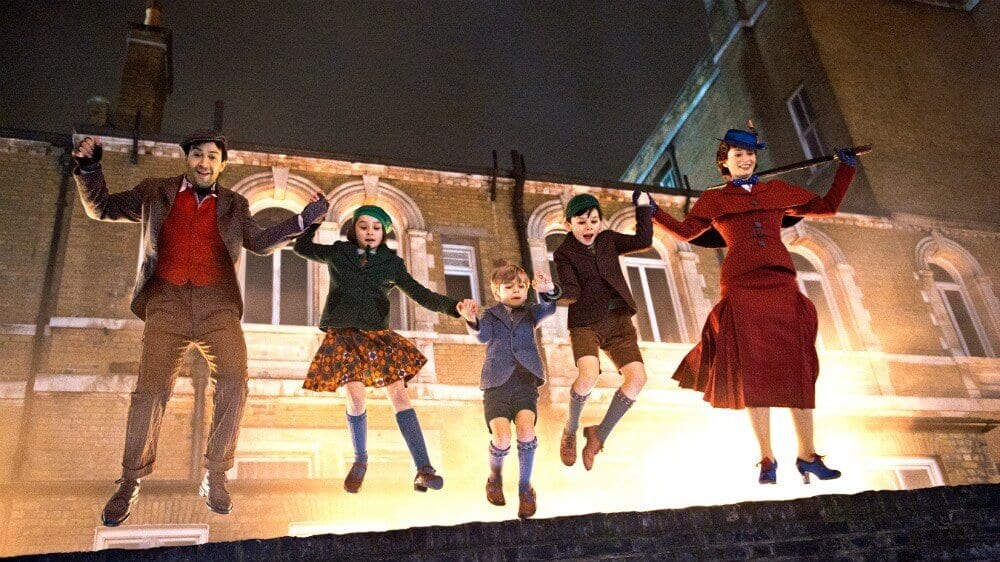
Mary Poppins Returns commits many of Incredibles 2’s sins, and much worse. While I still consider Incredibles 2 a technically good film, I don’t understand why anyone would even enjoy Mary Poppins Returns unless they specifically wanted to see the same movie again, but bad this time. As I said in my review, Mary Poppins is also one of my favorite movies, and I don’t see anything they really could have done better. Mary Poppins Returns tries to replicate the grand song and dance numbers and the use of live-action/animation integration, but the magic isn’t there. The songs are grating and not that memorable, the dancing is admittedly impressive, and the animation is about average. I still think the animated characters and backgrounds in the original pop more, although Mary and Jack’s (who’s totally not Bert, by the way, *wink*) watercolor clothes are a neat effect. The story isn’t identical on the surface: rather than George Banks growing closer to his children and focusing less on his work, Mary arrives to help Michael and his children save their home. To tell you the truth, I find this less interesting. Bringing a family closer together and reminding dad what it’s like to be a kid, all while teaching the Banks children a thing or two, means much more than saving a material object.
Mary Poppins has all the trappings of a big Hollywood musical: big talent, big music, and dazzling effects. But the truth is, it’s a small story about one man and how he views work, himself, and the people he loves. Mary Poppins Returns tries to tell a small story while making it big, with chase scenes, bad guys, and exciting climaxes. Mary swoops in and literally saves the day after making Jack and his friends struggle trying to do something she can magically do in an instant. In the original, Mary worked her magic by way of suggestions to Mr. Banks and lessons to the children. In this film, she flies around fixing problems with her bare hands. Not one but three straight deus ex machinas save the Banks family home. There are elements I can appreciate, like the footwork and some of the performances, but this film as a whole is insulting. Exactly like Incredibles 2 but on steroids, Mary Poppins Returns copies beat by beat the story and superficial trappings of Mary Poppins but loses any semblance of character development or heart. I find not a small amount of irony in the fact that people whined about the inclusion of Disney Princesses and the references to the internet in Ralph Breaks the Internet, while it’s really the only good sequel (which I consider to be different from a good movie) Disney has put out this year. It’s the only one that takes its characters and relationships in new and interesting directions without retreading the film we’ve already seen.
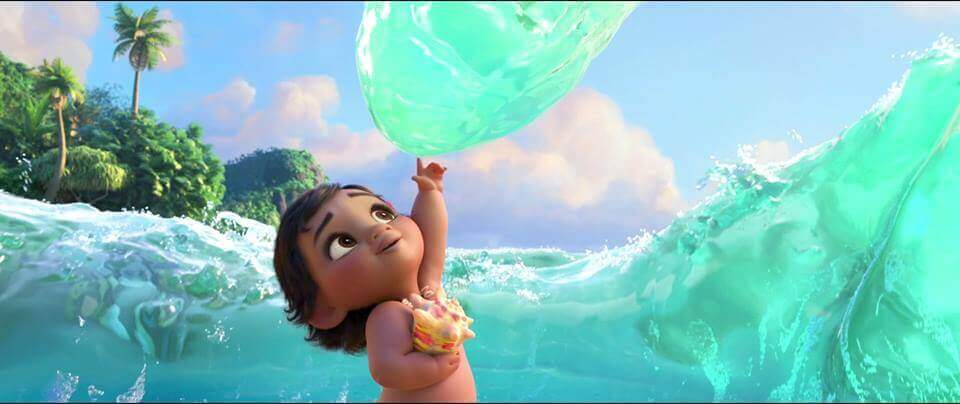
Meanwhile, films like Moana and SPECTRE receive criticism for being “formulaic” or playing into audience expectations. It really blows my mind the way these things sometimes bother people, but other times they’re more than happy to watch a sequel that functions as more of a remake. Moana maintains some of the tropes and archetypes typical of an animated Disney movie. It’s not even just princess movies, as plenty of Disney movies like Hercules, Tarzan and even Hunchback have similar narrative elements. But people seem to complain about the “Disney formula” almost exclusively with reference to fairy tales starring princesses, which I find telling. Moana, daughter of the chief, is a little different from her tribe as she longs to explore the ocean rather than staying at home on her small island. As Maui observes, she sings, wears a dress (really a top and skirt), and has animal companions. She even has an overbearing father who wants to keep her safe from things like sea monsters and the dreaded lava monster Te Ka. However, I don’t really understand defining the film purely in these surface-level terms, and even still, these things don’t bother me or detract from the story. Like The Incredibles, Moana is concerned with many topics. Sure, it’s about a girl who wants to find herself and explore the world, but that’s the film’s story, not its theme. Unlike many Disney characters, Moana takes wisdom from an elder, her grandmother Tala. Tala encourages Moana to follow the ocean’s call, but also tells her that she has to do what she thinks is right. If she isn’t ready or doesn’t want to confront what’s out there, it’s not necessarily her responsibility.
Moana also discovers a facet of her culture long lost: more than just farmers, they were explorers, exactly like she wants to be. They forged their way to new islands and made great discoveries, something that was lost to them when Maui stole Te Fiti’s heart, which threw the world into chaos and brought Te Ka out. Moana reintroduces her people to their true heritage and brings back traditions that have been taken away from them, and even forgotten. This is extremely different from characters like Jasmine and Mulan, who confront and change tradition. The dynamic between our two leads is also complicated by the fact that the impending doom that has to be stopped is Maui’s fault. Sure, we get a sound explanation as to why he would steal Te Fiti’s heart, but the road to Hell is paved with good intentions. What he did was bad and had terrible consequences. I love most Disney movies, especially the animated ones, but Hercules is the only other I can think of where one of our heroes is also kind of a villain (at least at first). So, while Moana bears narrative and aesthetic similarities to other Disney and princess movies, I don’t understand defining it solely based on that. Unlike others I’ve mentioned here, this movie improves with each viewing because there’s so much to think about beneath the surface. Moana’s plot is about a young girl who explores and saves her people’s lives. But its theme is about saving their culture and heritage; ultimately, the film tells you that it matters where and who you came from, that your culture and heritage are part of who you are. Moana furthers Walt Disney Animation’s legacy with respect and innovation, and I think that’s pretty damn cool.
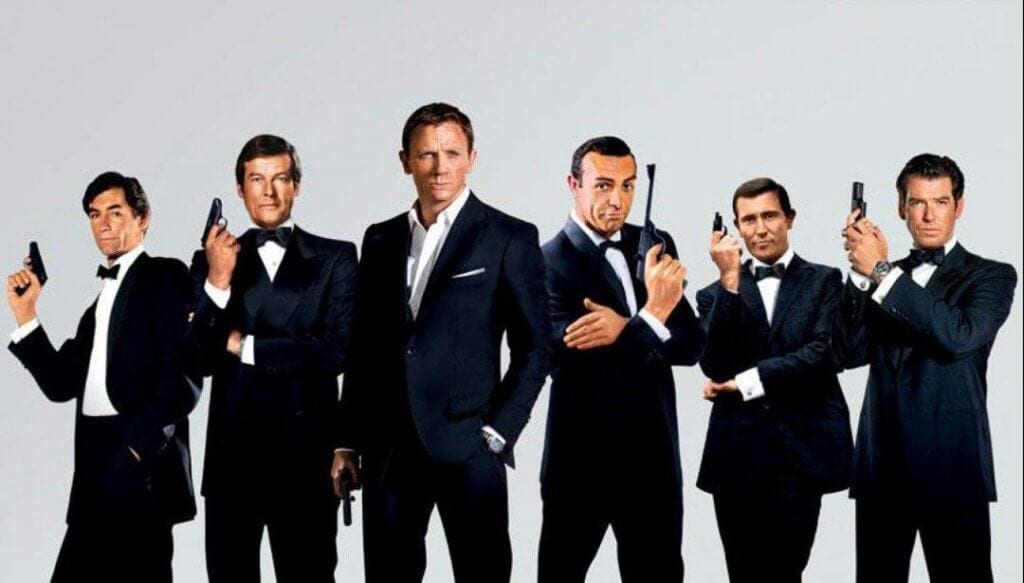
Likewise, SPECTRE wasn’t as well loved when it was released because it actually felt like a Bond adventure. Blofeld was back, they had the girls, the huge set pieces, and Q and Moneypenny were in their respective places by now. Look, I like the other Daniel Craig Bond movies, but blaming this one for being more like a Sean Connery flick is just asinine. This is what Bond fans had been wanting, and when they got it, it seems Craig’s fans were miffed at it not being “gritty” and brooding like Casino Royale. And again, it’s not just the visuals and plot that make a movie. I quite like the journey Bond goes on in this outing, and I love Madeleine and having Blofeld back. You can never make everybody happy, but as someone who grew up with the Bond movies, I just didn’t get the backlash to this one.
Overall, I, like many fans, don’t mind and even enjoy the superficial trappings like singing princesses, grand adventures, and SPECTRE operatives. To me, the problem comes when a film simply can’t tell its own story and, instead, re-tells another one to the extent that it feels like a shot-for-shot remake. They can’t all be winners, but this year felt like a lot of retreading, particularly for Disney and its subsidiaries (again, excluding Marvel). Ralph Breaks the Internet should be a lesson to the makers of Incredibles 2 and Mary Poppins Returns on how to make a sequel that respects the original without trying to be it.

